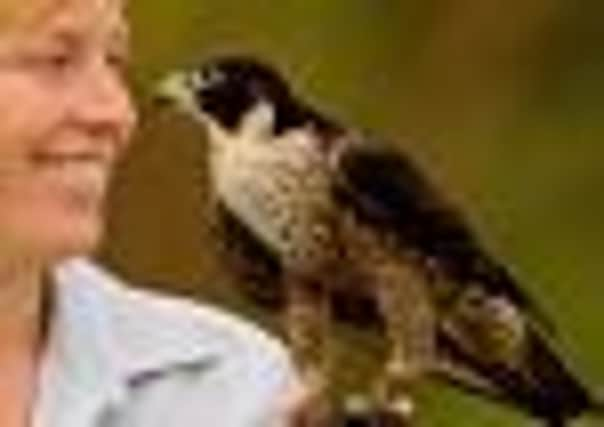Call to snare rare egg theives


These collections are not something to put on show, however – to do so would be to risk prosecution and even jail. Instead they are hidden away, brought out only when the collector feels safe enough to enjoy them.
The object of their affections is not something of any great value, at least in financial terms – it is a delicate, hollow egg. And now local residents are being called on to help protect the nests they prey on.
Advertisement
Hide AdAdvertisement
Hide AdIt sounds bizarre, but there are still a large number of people willing to risk a prison sentence just to get their hands on the eggs of rare bird species.
The practice has been illegal since the Wild Birds Protection Act 1954, and since 2003, “eggers” risk imprisonment for up to six months for the possession of wild birds’ eggs.
Such stiff penalties have been a major factor in cutting down the number of offences, and experts admit it is difficult to know how many new collectors have started since they were introduced. But despite the legal measures, the practice continues, and as the nesting season begins again members of the public are being urged to keep their eyes peeled for any would-be egg thieves in a bid to protect important local species.
The process once an egg is snatched is cold and decisive – small holes are pierced in the tops and bottoms and the contents are blown out. Rare breeding species particularly vulnerable to egg collectors include Slavonian and black-necked grebes, ospreys, white-tailed eagles, red kites, and red-necked phalaropes.
Advertisement
Hide AdAdvertisement
Hide AdWith its vast array of wild birds, the Lothians is a prime target for thieves – and in 2009 it emerged it was also home to one of the biggest collectors. Wildlife crime officers were staggered to discover more than 5000 birds’ eggs at the home of a 57-year-old man in Torphichen. Such a collection would have taken years to amass, and Charles Everitt, Scottish Investigative Support Officer at the UK National Wildlife Crime Unit (NWCU), said it was avid collectors such as this that made their annual campaign so important.
“The collectors are always looking to add that special piece, that rare egg, and so they remain active,” he said. “It’s hard to know if many new collectors have started up over the last 20 years or so because of the penalties, and most of the people we catch are older collectors. They can have thousands of eggs, but they don’t show off their collections or advertise them – there is no real financial motive in this, it is all about the collection.”
He is also aware of the influence the public can have in protecting nests.
In 2010, a pair of peregrine falcons who nest annually in the Pentland Hills Quarry became proud parents after a group of 20 residents took part in a round-the-clock surveillance scheme to protect their young.
Advertisement
Hide AdAdvertisement
Hide AdUnlike egg collectors, those targeting falcon nests do so for financial reasons – falcon chicks are able to fetch up to £20,000 on the black market trade in endangered species, and so are regularly targeted.
The falcons had seen their nest fall victim to thieves for 15 years before the intervention of Mr Everit, who sought out volunteers and the help of the Pentland Hills Ranger Service to keep the nests under constant surveillance.
Now he is hoping that similar vigilance will keep the local nesting birds and their priceless clutch of eggs safe for another year.
“We can’t afford to relax at this stage,” he said. “Over Easter and in the coming weeks Scotland’s Wildlife Crime officers will be out in force, targeting anyone stealing from Scotland’s wild bird nests.”
• Anyone who witnesses or suspects that people are involved in egg theft or any other rural crime should contact Crimestoppers on 0800 555 111 or the local police.